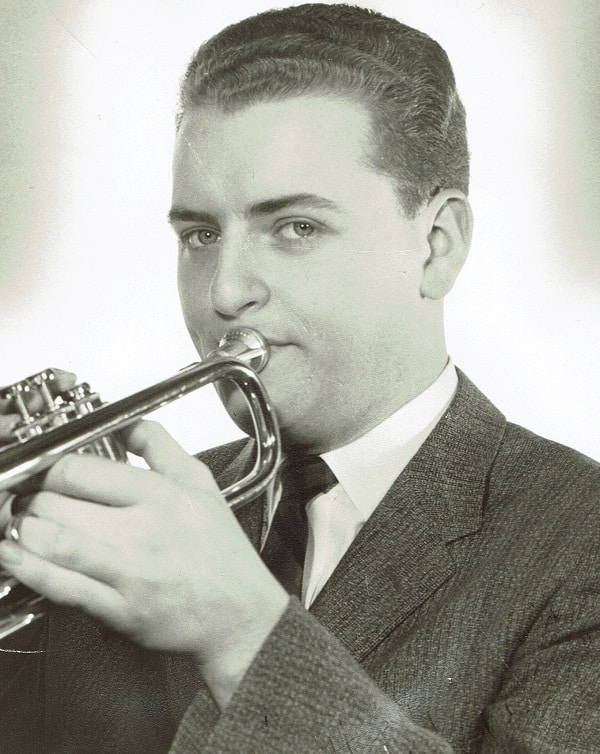From the early Salvation Army band I learned to play, and developed sensitivity to intonation – the ability to play in tune, in whatever group, at whatever dynamic level was required – and to listen to and work with other musicians, like actors in a play. The SA music, religious and grounded in worship, chorales and hymn tunes, provided a perfect place to develop and study. And Morley’s lessons launched me into music theory exploration, the technical basis for arranging and composing, regardless of genre.
Vern’s jazz taught me about the exciting immediacy of spontaneous composition – on-the-spot improvisation – the creative heart of jazz, swing, blues and soul music, and about the fascinating and exciting colours of a great arrangement.
Doc’s music, rising out of classical religious composers and poets, military band music, symphonies, fanfares and marches, took me back to my Salvation Army brass band roots. Doc once said “Give me a melody and I’ll follow you anywhere”. His melodies are a study in flowing, musical, lines.
Without Morley, Vern, and of course Doc Gayfer, my life would have been different. Following one possible thread, it could be argued that without Morley my interest in music theory might not have flourished. Without the connection to Vernon’s band, my ability in jazz and arranging might not have developed, and I might not have encountered Doc Gayfer, and revived my interest in brass bands.
Who among them had the greatest impact on me? Truth be known, I’m hard pressed to say. Just how I would have been different without them, any of them, is speculation, at best. Would I have learned in other ways, taken other roads? Through more formal study? Perhaps. At university? Conservatory? Or private lessons? Possibly. Or maybe I would have abandoned music altogether. All speculation, of course.
On the path to now, I’ve encountered some very talented musicians. Occasionally they do me the honour of coming together to play my music – mostly jazz flavoured these days. And, like publishing a story, the reward is knowing someone enjoyed your work. It’s the ultimate assessment, where all the struggles with theory are tested. It’s where the soundless written notes are heard, and where the magic becomes real. To paraphrase band leader Stan Kenton, referring to lead trombonist Vinnie Dean, (the musicians) can take black notes from white paper and bring wonderful life to them.” Both abilities truly magical.
Morley Calvert died in 1991, James McDonald Gayfer in 1996, and Vernon Isaacs in 1999. With such diverse music genres, I wonder what they would say about being here, on this page, together.

A nightclub style publicity head shot of Lloyd Hiscock playing trumpet around 1958-9





FEDERICO B GIMENEZ3 years ago
Lloyd, I did not expect that the short story would be autobiographical. Before reading it and for having met you and becoming friends in the 1980s, we thought of you as a computer techie with a flair for music and a desire to develop yourself in that area. Now we know that music was really your first love and your first skill since childhood and also, we now know that you have really done well in this. Congratulations. You are so lucky and successful and all the credit belongs to you. How many people grow to be our age with never ever really being able to work in something that one loves? You are one of the few. Both Tita and I read your short story and loved it. We now realize that, in addition to your techie and music skill, you also have a very promising writing ability. What other surprises are you keeping for future disclosure? Thanks for sharing it with us. Fred Gimenez